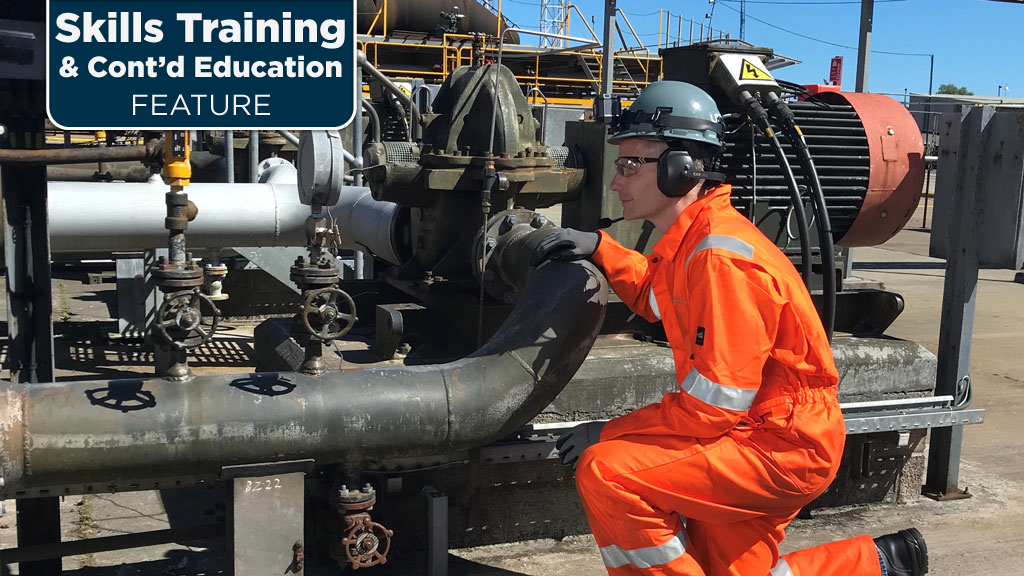An augmented reality (AR) provider is hoping to make inroads into trades training in some of the most remote locations in Canada.
““Our goal is to accelerate the time to competency for the apprentice, the new guy on the site… ,” says Charlie Neagoy, senior vice-president of customer success, Librestream.
The AR provider incorporates a platform called digital work instruction that allows workers to install or deal with a problem through interactive guided instruction from another location. It is done from a knowledge network platform that integrates artificial intelligence and AR technology, explains Neagoy.
“We are focused on getting the right information to the person who needs it, the moment they need it, where ever they are.”
Ted Polzer, product and customer support for CASE Construction Equipment, a division of CNH Industrial, sees the merits of the Librestream tool.
With dealerships throughout Canada – from Newfoundland to B.C. – CASE faces “a big challenge” having a capable technician on some of its more isolated sites when equipment breaks down.
“Canada is a massive territory for us,” Polzer says.
Prior to using Librestream, CASE looked to various companies with video capability to connect to remote field locations to diagnose problems but video connectivity was poor to many areas because of weak WiFi signals.
Librestream’s platform gets around the problem by requiring less bandwidth to transmit high-definition images and videos, Polzer says.
“We started a pilot with them (Librestream) in Canada just to see how well it connects in areas that don’t have good cellular coverage and we were really blow away by the connectivity.”
Polzer says one of CASE’s objectives is to get all of its equipment dealerships operating with the tool.
The tool fits into the content of CASE’s curriculum for its three-tier training certification program open to dealers and technicians throughout North America.
“If you are able to connect an experienced technician to an inexperienced technician on a repair and then perform some types of training close to that repair, the educational value is very high,” explains Polzer.
Librestream’s product can also be tailored to a specific dealership’s needs because it is built on an “open architecture” platform. A mounted camera with flash control, zoom control and thermal imaging is an example of how far it can go, he points out.

“It has found a lot of issues that would have taken a lot longer to diagnose for our customers,” Neagoy adds.
He says a GC travelling from one jobsite to another can have “eyes on a problem” virtually and provide a solution quickly.
Up to five percent of all service problems can be solved remotely by talking a user through the solution, according to Neagoy. Alternatively, a service technician can often resolve the issue if he has seen the problem online and has access to the right tools and parts to make the repair in-situ.
Neagoy adds the technology can be installed on almost any modern electronic device – including smart phones, PCs or wearable tablets.
Polzer, who is unaware of other OEMs using the tool, says CASE evaluated three products before choosing Librestream largely because of its focus on customer service and its need for minimal bandwidth.
The big equipment manufacturer plans to integrate the tool in its online training curriculum for all of its dealerships over the next few months.
Neagoy says the tool is not limited to use in heavy equipment. It can assist users on how to do installations such as liquid-applied membranes for a ceiling or how to build a product such as ZIP System wall sheathing.
“It gives you the ability to have an expert do (inspect) that immediately so you can go on to the next procedure,” he adds. “I can imagine guys hanging out a shingle and creating a virtual inspection business on the build-out of stuff.”
While the technology is not new for Librestream (it has been retained by hundreds of companies for years), up until recently it has largely been marketed primarily to large companies. “We’re now starting to see it working its way down to smaller companies, smaller industries.”
“This whole idea of knowledge augmentation is absolutely crucial. I see more ubiquity coming along,” says Neagoy.




Recent Comments
comments for this post are closed